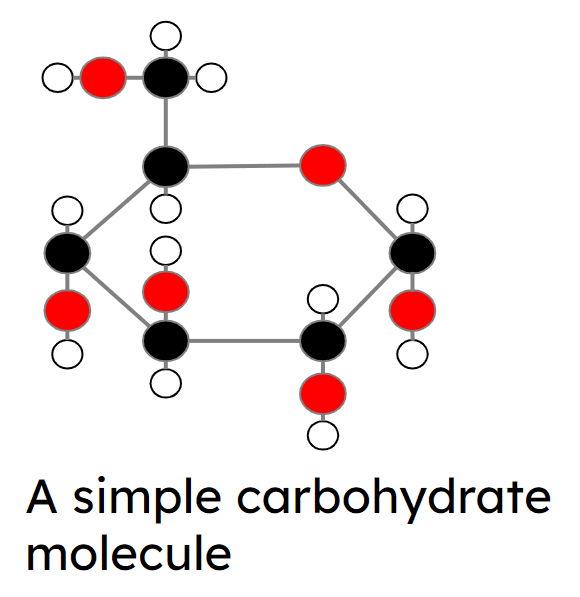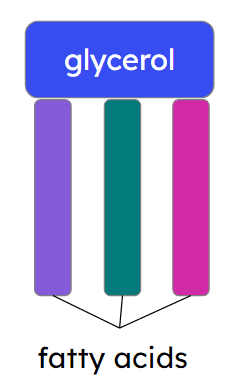Biological molecules
I can describe carbohydrates, proteins and lipids as biological molecules and what they are made of.
Biological molecules
I can describe carbohydrates, proteins and lipids as biological molecules and what they are made of.
These resources will be removed by end of Summer Term 2025.
Lesson details
Key learning points
- Organisms are made of carbohydrates, proteins and lipids (including fats), plus water and minerals.
- Carbohydrates, proteins and lipids are used to build cell structures including membranes and organelles.
- Carbohydrates are polymers made of sugars.
- Proteins are polymers made of amino acids.
- Lipids are molecules made of fatty acids and glycerol.
Keywords
Polymer - A polymer is a molecule made of many repeated units.
Sugar - Sugars are the units used to build large carbohydrate molecules.
Amino acid - Amino acids are the units used to build protein molecules.
Fatty acid - A fatty acid is one of two units used to build lipid molecules.
Glycerol - Glycerol is one of two units used to build lipid molecules.
Common misconception
Confusion often arises over which monomers are used to build which polymers.
The lesson clearly explores carbohydrates, proteins and lipids as separate sections and covers the monomers and the polymers they form with care and repetition.
To help you plan your year 10 biology lesson on: Biological molecules, download all teaching resources for free and adapt to suit your pupils' needs...
To help you plan your year 10 biology lesson on: Biological molecules, download all teaching resources for free and adapt to suit your pupils' needs.
The starter quiz will activate and check your pupils' prior knowledge, with versions available both with and without answers in PDF format.
We use learning cycles to break down learning into key concepts or ideas linked to the learning outcome. Each learning cycle features explanations with checks for understanding and practice tasks with feedback. All of this is found in our slide decks, ready for you to download and edit. The practice tasks are also available as printable worksheets and some lessons have additional materials with extra material you might need for teaching the lesson.
The assessment exit quiz will test your pupils' understanding of the key learning points.
Our video is a tool for planning, showing how other teachers might teach the lesson, offering helpful tips, modelled explanations and inspiration for your own delivery in the classroom. Plus, you can set it as homework or revision for pupils and keep their learning on track by sharing an online pupil version of this lesson.
Explore more key stage 4 biology lessons from the Biological molecules and enzymes unit, dive into the full secondary biology curriculum, or learn more about lesson planning.

Licence
Starter quiz
6 Questions
used for energy and insulation
used as an energy source
used for growth and repair

Exit quiz
6 Questions


a molecule made of many repeated units
the units used to build large carbohydrate molecules
the units used to build protein molecules
one of two units used to build lipid molecules
a molecule made of one unit


